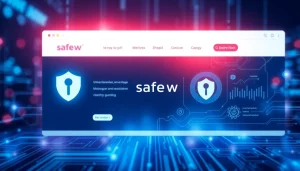Enhance Your Career with Life Coaching Certification: Key Insights and Steps
Understanding Life Coaching Certification
What is Life Coaching?
Life coaching is a collaborative process that involves guiding individuals towards achieving their personal and professional goals. Unlike therapy, which often delves into past traumas and emotional healing, life coaching is future-focused, emphasizing clarity, motivation, and action. Coaches utilize various techniques and strategies to help clients identify their aspirations, overcome obstacles, and develop actionable plans. The beauty of life coaching lies in its adaptability; it can cater to various aspects of life including career development, relationships, health, and personal growth.
The Importance of Certification
Obtaining a life coaching certification is a crucial step for anyone serious about pursuing this rewarding career. Certification demonstrates a level of professionalism and dedication to your craft. It signals to potential clients that you have undergone formal training and acquired the necessary skills and knowledge to support them effectively. Moreover, many clients seek reassurance that their coach has been vetted by a recognized institution, making certification essential in building trust. This credential also opens the door to various professional networks and resources that can further enhance your coaching skills.
Types of Life Coaching Certifications Available
Life coaching certifications come in various forms, depending on the niche and approach of the coaching methodology. Some of the most common types include:
- General Life Coaching Certification: Focused on broad life coaching principles applicable to diverse areas.
- Specialized Coaching Certifications: These target specific areas such as career coaching, relationship coaching, wellness coaching, or executive coaching.
- International Coach Federation (ICF) Certification: Highly regarded in the industry, ICF offers three levels of credentialing based on experience and coaching hours.
- National Board for Health and Wellness Coaching (NBHWC): Focused on wellness coaching, this certification integrates health and behavioral science.
Steps to Obtain Your Life Coaching Certification
Researching Certification Programs
The first step towards becoming a certified life coach is to research various programs available. It is essential to find a program that fits your needs, budget, and coaching philosophy. Consider factors such as accreditation, course content, delivery method (online vs. in-person), and the duration of the program. Websites like life coaching certification portals can provide a wealth of information and resources to help you compare different offerings. Look for programs that include practical coaching hours, mentorship opportunities, and a strong community network.
Key Requirements for Enrollment
Most life coaching certification programs have specific requirements for enrollment. Common prerequisites may include a high school diploma or equivalent, a passion for personal development, and sometimes prior coaching experience or education. Additionally, some programs may require prospective students to complete an application, which includes detailing their motivation for becoming a coach.
Preparing for Certification Exams
If your chosen certification program includes an examination, preparation is key. Begin by thoroughly reviewing the study materials provided by the program. Joining a study group or hiring a mentor who has successfully passed the exam can also provide valuable insights. Practice exams can help you gauge your readiness and improve your confidence. Moreover, investing time to understand the core competencies needed in coaching will not only help you pass but also equip you with the skills necessary for effective coaching.
Benefits of Life Coaching Certification
Career Advancement Opportunities
Achieving a life coaching certification can significantly enhance your career prospects. Certified coaches often report higher income potential compared to their non-certified counterparts. Moreover, many organizations prefer or even require certifications for independent coaching contracts, making this credential a key differentiator in a competitive market. Additionally, certification can lead to further opportunities such as workshops, speaking engagements, and writing prospects, thereby diversifying income streams.
Building Credibility and Trust with Clients
Clients tend to hire coaches who have undergone formal certification training. This is because certification often serves as a stamp of approval from governing bodies, indicating that the coach adheres to strict ethical standards and best practices. By acquiring a certification, you signal that you are committed to ongoing professional development and that you possess a reliable foundation of knowledge to assist your clients. This credibility fosters trust, making clients more likely to engage with and refer you meaningfully.
Improving Coaching Skills and Techniques
The process of obtaining a life coaching certification is inherently educational. It involves rigorous training that covers essential coaching techniques, client psychologies, and effective communication strategies. This training not only sharpens your existing skills but also introduces you to new methodologies and frameworks that can enhance your coaching practice. Many programs also include practical experience, allowing you to practice your craft in real-world situations, further solidifying your knowledge and expertise.
Common Challenges in Pursuing Life Coaching Certification
Time Management and Study Habits
Pursuing a life coaching certification often requires a significant time commitment, which can pose challenges for busy individuals balancing work and personal responsibilities. To manage your time effectively, create a study schedule that allocates specific hours for coursework, exam preparation, and practice coaching sessions. Break your study material into manageable chunks, and prioritize tasks based on deadlines and personal growth goals. By treating your studies as a top priority, you’ll find it easier to stay focused and committed.
Financial Considerations and Costs
The financial investment required for life coaching certification can vary widely, ranging from several hundred to several thousand dollars. It’s crucial to assess your budget and consider the potential return on investment that a certification can offer. Look for programs that offer payment plans or scholarships. Additionally, factor in costs for materials, required examinations, and any ongoing costs like continuing education. Comparing different programs can help you find an option that provides value without undue financial strain.
Staying Motivated Throughout the Process
Maintaining motivation while pursuing life coaching certification can be a challenge, particularly if the process is lengthy or complicated. To stay inspired, remind yourself of your goals and the reasons why you chose to embark on this path. Setting small, achievable milestones can help break down the journey into manageable steps. Celebrating these achievements, whether through personal rewards or sharing successes with peers, can keep your passion alive. Connecting with supportive networks of fellow aspiring coaches can also provide motivation and encouragement along the way.
Measuring Success as a Certified Life Coach
Setting Measurable Goals for Your Coaching Practice
Upon becoming a certified life coach, establishing measurable goals for your practice is essential for tracking progress and ensuring sustainable growth. Start by examining what success looks like to you—be it a specific number of clients, a certain income level, or specific client outcomes. Utilize the SMART criteria (Specific, Measurable, Achievable, Relevant, Time-bound) to help formulate goals that are clear and actionable. Regularly review your progress and adjust your strategies as needed to remain aligned with your vision.
Tracking Client Progress and Satisfaction
Client progress is a prime indicator of the efficacy of your coaching practice. Implementing a system for tracking client outcomes—whether through follow-up surveys, regular progress reviews, or one-on-one check-ins—will provide valuable insights into your coaching effectiveness. Establishing client satisfaction metrics can also help gauge how well you’re meeting their needs. Feedback allows for continual improvement and reinforces the trust clients place in you as their coach.
Continuing Education and Professional Development
The world of coaching is ever-evolving; thus, committing to lifelong learning is crucial for sustaining success. Continuing education through workshops, advanced certifications, and attending industry conferences will not only enhance your skills but keep you informed about the latest coaching trends and methodologies. Networking with other professionals can also provide opportunities for collaborative learning and mentorship, enriching your development as a coach.














Post Comment